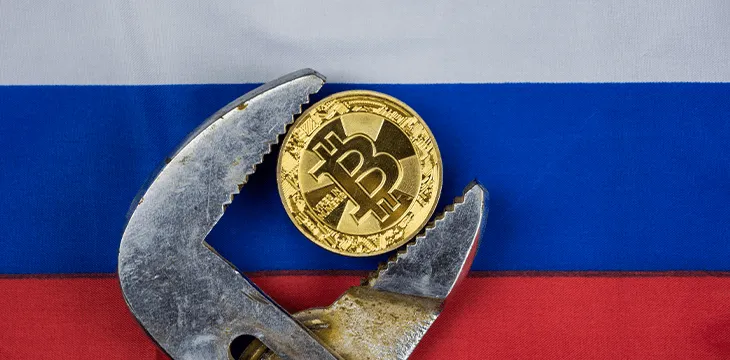|
Getting your Trinity Audio player ready...
|
Russia could soon legalize digital currencies despite ongoing calls to ban them by the country’s top financial watchdog. The country’s Finance Ministry is moving ahead with its Bitcoin regulation proposal, and in its latest move, it has introduced a bill to parliament seeking to make digital currencies legal.
On February 21, the ministry announced that it had submitted a bill to parliament that seeks to give Bitcoin legal clarity for the first time in Russia. It took into consideration all the proposals from other law enforcement agencies on the best way forward for the industry while drafting the bill, the ministry said in its press release.
The move comes after the ministry announced last week that the public feedback period for the bill had opened up and would run until late March. It issued two notices, with the first calling for feedback from digital asset stakeholders, legal entities, and the public at large on the bill.
The second notice called for feedback on what existing financial and tech laws need to be amended to accommodate the new asset class.
“The public discussion procedure takes place in several stages. We are currently at the initial stage of informing about the beginning of development,” a representative for the ministry stated at the time when details of the bill hadn’t been revealed.
According to local media outlets, the proposed bill doesn’t give Bitcoin legal tender status. Instead, it treats it like an investment tool, much like stocks or gold.
It requires all virtual asset service providers (VASPs) to obtain a license to serve Russian customers, subject to fulfilling a raft of requirements. These licenses will apply to exchanges as well as over-the-counter platforms. For foreign exchanges, the bill requires them to register a legal entity in Russia before applying to be licensed to serve Russians.
Russia will be doubling down on Know Your Customer (KYC) checks at a time when authorities globally have cracked down on several exchanges that had flouted these requirements, led by the serial law breaker Binance. Other exchanges that have attracted the attention of regulators for lax KYC and AML measures include Kraken, BitMEX, and Poloniex.
Russia is seeking to tighten up KYC checks, with the proposed bill requiring all traders to go through KYC checks before they are allowed to access the exchanges. All digital currency-to-fiat transactions must also be conducted through the user’s registered bank account, similar to a requirement by South Korea for all exchanges to link users to their bank accounts to combat fraud and money laundering.
If the bill passes, it will drastically cut down the amount of money flowing into the digital asset market. For one, it will make it mandatory for any trader to take a test on their proficiency in digital asset trading. Those that pass will be allowed to invest up to 600,000 rubles ($7,533), with those that fail seeing their investment capped at 50,000 rubles ($630). Qualified investors will have no limitations.
Further, exchanges must warn their users of the risks that digital asset investing exposes them to.
The bill comes amid objection to Bitcoin regulation by the Bank of Russia. The central bank has pushed for a total ban on digital assets, which it has long claimed could destabilize the Russian economy. Recently, the bank reportedly made it clear that it’s opposed to the regulation proposals by the Ministry of Finance and that it’s preparing its own draft bill that bans Bitcoin.
Despite the opposition, the Ministry is unwavering in its support for Bitcoin, saying that the central bank’s objections “will be considered in the further work on this bill where they don’t contradict the Ministry of Finance approach.”
Watch: CoinGeek New York panel, Government & Public Sector Applications on Blockchain

 07-12-2025
07-12-2025 





